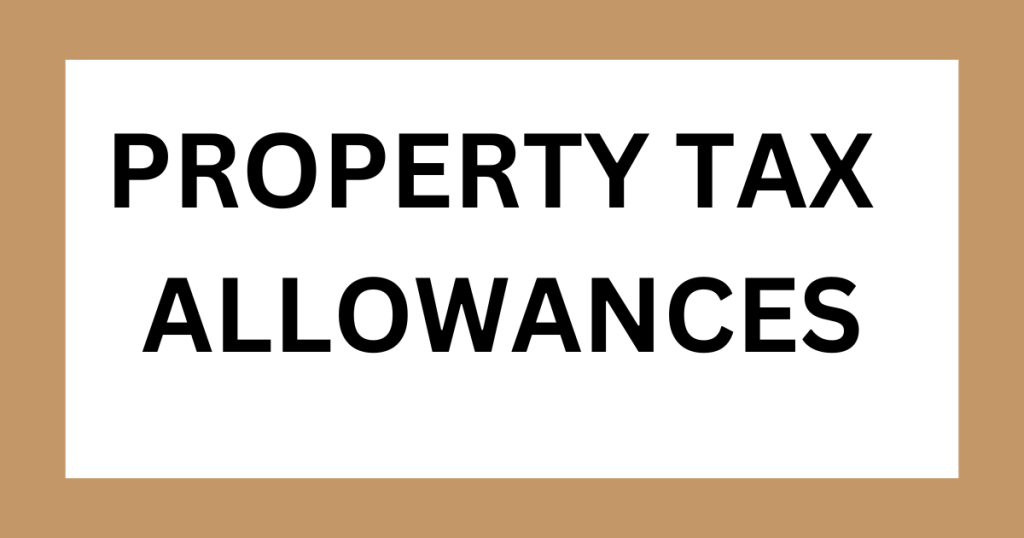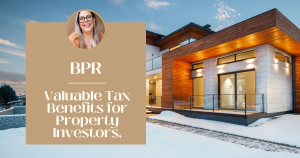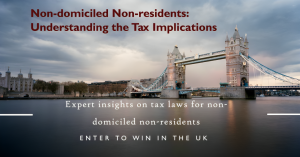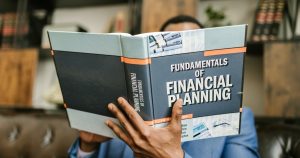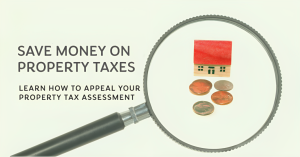Looking for a guide on tax-free allowances on property in the UK? You need not worry as our experts have got your back! So, stay with us.
Tax-free allowances on property in UK
Starting from April 6th, 2017, you are eligible to receive up to £1,000 in tax-free allowances each tax year for either property or trading income. If you have both types of income, you will receive a £1,000 allowance for each. If your annual gross property income is less than or equal to £1,000, you don’t have to inform HMRC or declare this income on your tax return, unless you have other income that requires a tax return. On the other hand, if your annual gross trading income is less than or equal to £1,000, you may not have to tell HMRC, but in some cases, you must register for Self Assessment and declare the income on your tax return.
Regardless of the amount of your income, you must keep records of all the income you receive. You may opt to utilize tax-free allowances rather than deduct expenses or other allowances if your yearly gross trading or property The maximum amount you can deduct is £1,000 or the amount of your income, whichever is lower. If your expenses are greater than your income, it may be more beneficial to claim expenses instead of allowances. Gross income refers to the total amount you would report on your tax return before any allowances or expenses are subtracted.
In some cases, even if your income is less than or equal to £1,000, you may choose to complete a tax return. You can ask HMRC to stop sending you tax returns if you believe you don’t need to complete one. You can do this either online using a Government Gateway user ID and password, by phone or post.
Trading Allowance

The trading allowance is a tax exemption of up to £1,000 per year for individuals with trading income from self-employment, casual services, hiring personal equipment, etc. If your annual gross income from these sources is less than or equal to £1,000, you don’t have to inform HMRC, unless you cannot use the allowances or must register for Self Assessment. However, if your gross trading income is over £1,000, you must register for Self Assessment. If you have other gross income over £1,000 but less than £2,500, you need to contact HMRC, and if you have other income over £2,500, you must register for Self Assessment. Note that the trading allowance does not apply to trading income from a partnership.
Tax-Free Allowances on Property in UK - Property Allowance
The property allowance is a tax exemption of up to £1,000 per year for individuals with income from land or property. If you own a property jointly with others each of you is eligible for a £1,000 allowance against your share of the gross rental income. Your annual gross property income is less than or equal to £1,000, you don’t have to inform HMRC, unless you cannot use the allowances. If your income is higher, you must declare it. Exceeding your income through deductions and creating a loss is not possible.
If you have gross property income over £1,000 but less than £2,500, you need to contact HMRC, and if you have property income over £2,500, you must register for Self Assessment. If you claim the property allowance for one business, you may not claim actual expenses for the other business. The property allowance cannot be used on income from the Rent a Room Scheme.
Tax-Free Allowances on Property in UK - When you cannot use the allowances
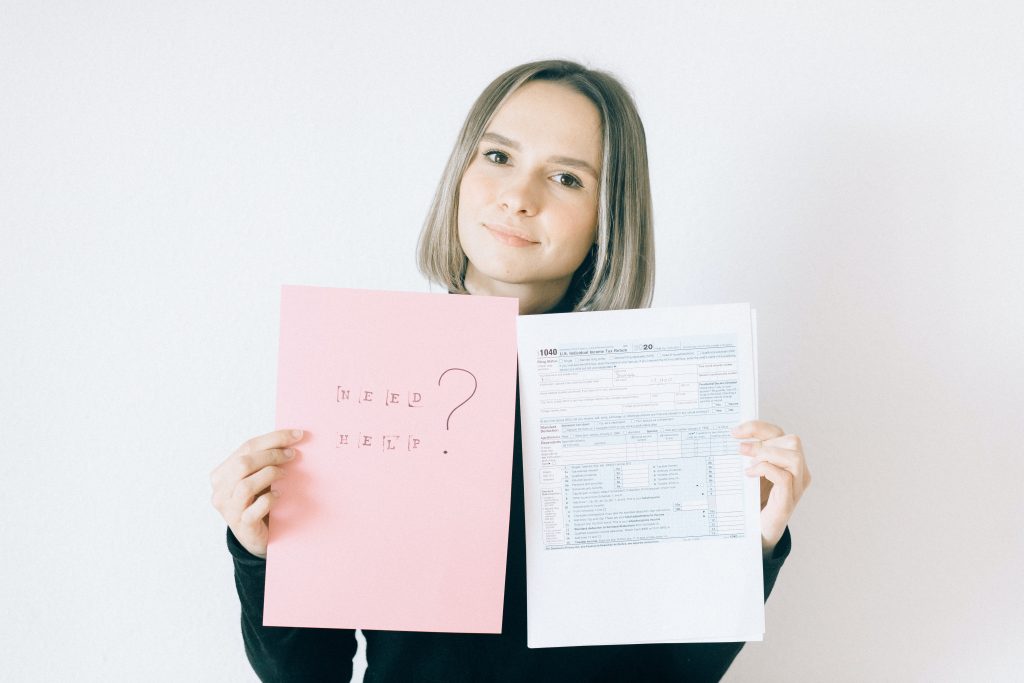
You cannot use the allowances in a tax year if you have any trade or property income from:
- A company owned or controlled by you or someone connected to you.
- A partnership with a connection to you as a partner.
- An employer of you or your spouse or civil partner.
You cannot use the property allowance if you:
- Claiming a tax reduction for finance costs, such as mortgage interest on a residential property.
- Instead of using the Rent a Room Scheme, subtract expenses from the income earned by renting out a room in your own home.
The property allowance cannot be used if you claim the tax reducer for finance costs such as mortgage interest on a residential property, or deduct expenses from income from letting a room in your home instead of using the Rent a Room Scheme.
Tax-Free Allowances on Property in UK - Self-Employed
For a new self-employed business with an expected annual gross income under £1,000, registering for Self Assessment is optional. If your gross income is projected to exceed £1,000 next tax year, you can choose to register.
Register and report income via a tax return to claim loss relief, make voluntary Class 2 National Insurance payments, access Tax-Free Childcare for childcare expenses, or apply for Maternity Allowance based on self-employment earnings.
If your gross income surpasses £1,000 in a tax year, register for Self Assessment by October 5th of the subsequent tax year. If already registered, utilize trading/property income allowances by subtracting from gross trading/property income on your return; no deduction for other expenses/allowances.
“Unlock savings with our trusted property tax advisor services. Let us guide you through effective strategies”
Conclusion
It is important to keep accurate records of your income if you use the trading or property income allowances, such as invoices, emails, bank statements, and a record of your income from each customer. You may face penalties from HMRC if your records are not accurate, complete, and readable. The allowances may affect your eligibility for benefits and credits such as tax credits, high income child benefit charge, student loan repayment, and married couples allowances. However, your income for Universal Credit purposes will not be affected.
For inquiries about property use or trading allowances reach out to the Income Tax helpline. If you’ve paid tax via PAYE on property/casual income and aren’t in self-assessment, you might get a refund.
Tax-Free Allowances on Property in UK - Why us?
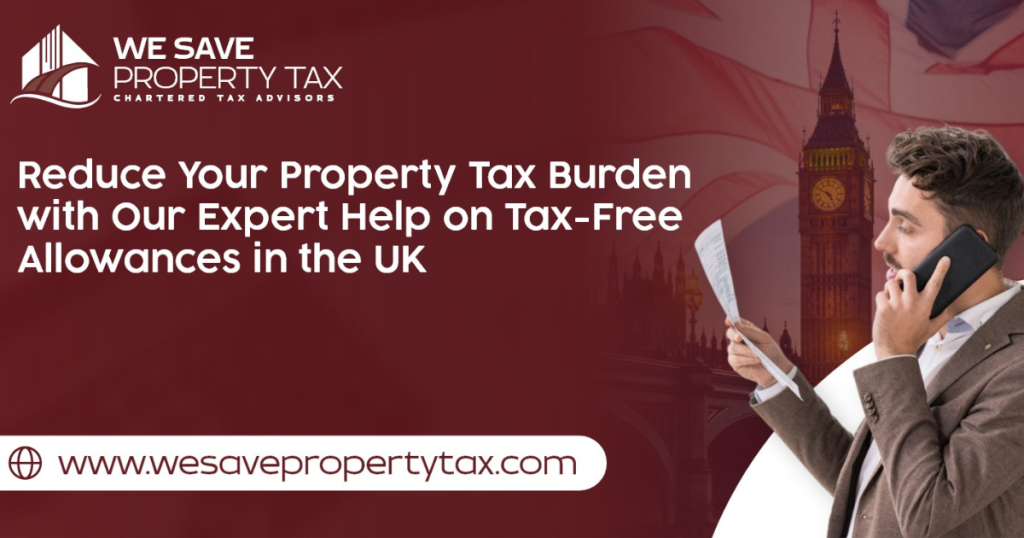
Are you looking for a reliable and experienced property tax expert in UK? Look no further than We Save Property Tax! Our team of experts has years of experience in the field and a deep understanding of UK tax laws and regulations. We are dedicated to helping our clients save money and maximize their tax benefits.
At We Save Property Tax, we take a personalized approach to each of our clients’ needs. We understand that every client is unique and has different tax requirements. That’s why we take the time to get to know you and your property, so we can tailor our services to meet your specific needs. We stay up-to-date on the latest tax laws and changes, so you don’t have to. Our team is always on top of the latest developments and is ready to provide you with the most up-to-date information and guidance.
We are committed to providing the highest quality of service and ensuring that our clients receive the best possible results. Our goal is to take the stress and confusion out of property taxes, so you can focus on your other responsibilities. Don’t leave your property taxes to chance. Choose We Save Property Tax for a hassle-free, expert-led approach to your property taxes. With our team, your property taxes are in expert hands.
Contact us today to learn more about our services and how we can help you save money on your property taxes.

